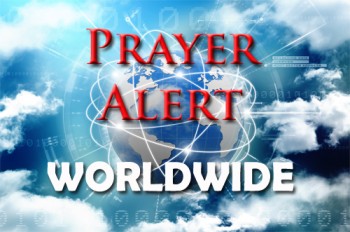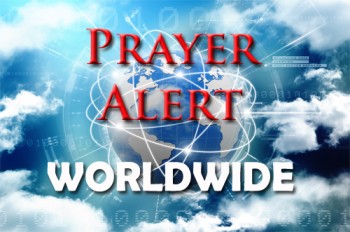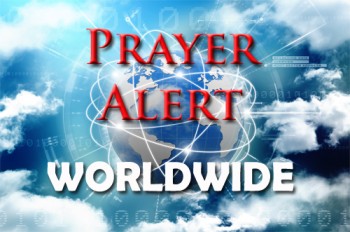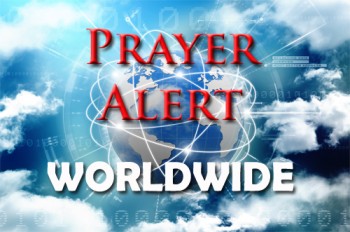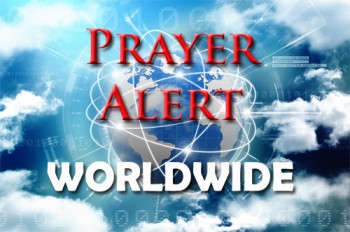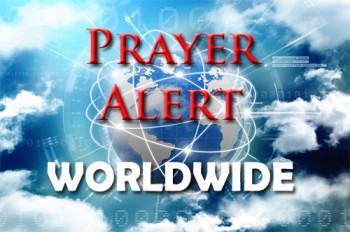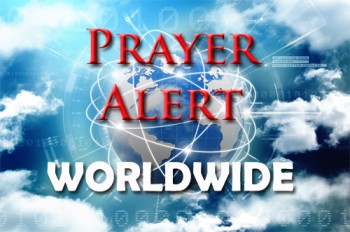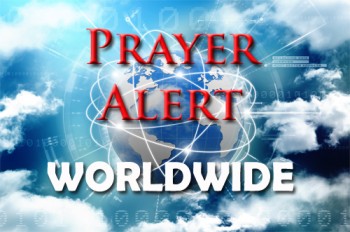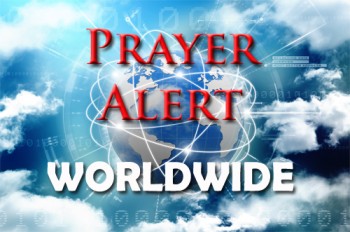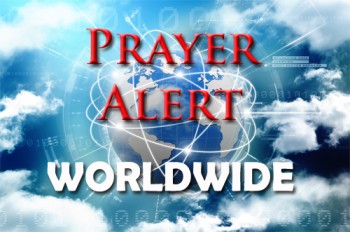Displaying items by tag: Asia
Hong Kong: Christians and Chinese crackdown
Recently, the situation in Hong Kong has changed dramatically. There is great fear that things are not going to settle down or be anywhere like they used to be. On 6 January, over 1,000 police officers raided 73 different locations across the city, arresting 53 politicians, pro-democracy leaders, human rights activists, and others. Chris Patten, Hong Kong's last governor, says that what is happening in the city is nothing short of China's brutal destruction of a free society. The government and the police use many different means to persecute pastors and others. Reports estimate that over 300,000 plan to flee Hong Kong in the coming months. Several pastors have already left, while others have gone underground. The UK will introduce a new visa at the end of January which will give 5.4 million Hong Kong residents the right to come and live in the UK, and eventually become citizens. See
India: protests over farm laws
Indian farmers have been protesting against farm acts passed by the parliament last September. Their unions have demanded the laws be repealed, and will accept nothing less. The new acts, which exclude guarantees giving farmers a fair price for their produce, are described as ‘anti-farmer laws’ by the unions and opposition politicians. Since September the protests have become more violent. On 26 November a nationwide general strike by 250 million people took place in support of the farmer unions,and on 30 November 300,000 farmers converged in various places from the Punjab to Delhi. On 26 January tens of thousands violently fought the police, overturned vehicles, and hoisted religious flags from the ramparts of Delhi’s Red Fort. See
China: ‘more painful than death’
23 January marked a year since the coronavirus lockdown chaos in Wuhan City when 11 million people were isolated for 76 days as authorities tried to contain the spread of a virus that overwhelmed hospitals and emptied streets. Many now fear it could happen again. China announced sanctions less than half an hour after US president Joe Biden took office. A year on, Yue, a Wuhan resident, said he had almost forgotten the chaos in the early days of that long quarantine, but new outbreaks in Hebei in the north of the country - where millions are again in lockdown - brought it all back. ‘The most miserable thing wasn’t death itself. Trying to get medical treatment was more painful than death. Chinese people have a strong capacity to endure disasters. I survived the Great Famine,’ he said, referring to the catastrophe between 1959 and 1961 that claimed at least 45 million lives.
Iran: abuse of prisoners continues
International Christian Concern has released its annual report, documenting the abuse and condition of prisoners in Iran’s prisons. Their treatment has long been of major concern for the international community. Iran violates not only international standards of right to life and health of prisoners, but its own national code as well. Political prisoners and Christians arrested for their faith are housed with common and dangerous criminals. They are intentionally placed there for targeting. Also commonly used are solitary confinement for indefinite amounts of time and the denial of medical treatment for prisoners who are tortured or injured before incarceration. Pray for the Iranians imprisoned for their faith, including Joseph Shahbazian, an Iranian-Armenian church leader, who received the highest requested bail for any imprisoned Christian, $150,000. Saheb Zaman Fadaie, who received eighty lashes and a six-year sentence, is experiencing medical neglect.
Israel / Gaza: putting citizens’ health above politics
The Gaza Strip recently took advantage of the latest technologies used to produce drinkable distilled water, thanks to Israeli cooperation. Damour for Community Development, a nongovernmental organisation based in Ramallah in the West Bank, brought into the besieged enclave two atmospheric water generators that turn air into water using solar power. The machines are produced by an Israeli branch of a US company that obtained the patent for this device. Arava Institute for Environmental Research in Israel also donated a third generator for drinking water at a specialised hospital for children in the Gaza Strip. The generators are three months into a six-month trial phase to assess their operation and quality. They will not solve Gaza’s water crisis but will raise residents’ awareness of this technology, which can be the solution to clean water. The suppliers of the generators managed to work without dealing with the Hamas-controlled government institutions which do not coordinate with the Israeli side.
Indonesia: earthquake, volcano eruption
Many earthquakes hit Indonesia: The most recent, of 6.2 magnitude, struck Sulawesi island early on 15 January, killing at least 46, destroying houses, flattening a hospital, setting off landslides, and injuring hundreds. Then the next day Mount Semeru, the highest volcano on Indonesia’s most densely populated island of Java, spewed hot clouds up to three miles away. The National Disaster Mitigation Agency warned people living in the villages on the slopes of the 12,060-foot mountain to be vigilant in looking for danger signs. People around the river basin on the slopes of the mountain should beware of high rainfall intensity that can trigger lava floods. Semeru’s alert status had been at the third-highest level since it began erupting in May. In December it sent hot ash 9,800 feet, triggering panic among villagers.
India: Christian community banned from religious services
On 8 January Karnataka state police banned a community of fifty Christians from having worship services indefinitely. They claimed that none of them were Christian by birth and must have been coercively or fraudulently converted to Christianity. They were also accused of collecting government benefits as both Christians and Hindus. Hindu radicals use the state police to clamp down on Christian activities. They have tried social boycotts and physical beatings. However, local Christians remain faithful in the midst of continued harassment.’ One of the biggest threats to Hindu nationalist ideology is the gospel of Jesus Christ, which frees Hindus from the bondage of trying to appease or earn the favour of millions of false gods. If the gospel continues to spread, India cannot become the land of the Hindus. Hindus believe Christians must be treated as enemies. However the constitution states that citizens have the freedom to profess, practice, and propagate the religion of their choice. See also
Hong Kong: national security
55 Hong Kong activists and former politicians were arrested for subversion under the controversial national security legislation. They were later released on bail without their passports or travel documents. Next they held a news conference where Fernando Cheung spoke. He is a politician who resigned his seat in protest alongside other pro-democracy lawmakers in November. He believes the authorities will press charges after they have sorted out any evidence they gathered via sweeping search warrants executed by over 1,000 police officers. He said this is an effective way to bar them from seeking asylum. Since the national security law was passed, numerous Hong Kong activists have fled into exile. Many believe police may have allowed the activists to go free on bail to avoid fuelling international criticism. US secretary of state Michael Pompeo called the mass arrests an outrage that demonstrated the Chinese Communist Party’s contempt for its own people and the rule of law.
China: pastor jailed and heavily fined
Recently the Chinese Communist Party (CCP) sentenced House Church Pastor Li Juncai to five years in prison and fined him 210,000 yuan (£23,902). His church is the largest in the area, attracting 700 to 800 believers. In 2019, the CCP detained him for obstructing government administration, forcibly removed the cross from the church, removed signs proclaiming ‘Love God and people’, and forced church members to raise China’s national flag in front of the church. The pastor’s son contends that CCP authorities fabricated all charges against his father for taking a stance against the demolition of the church cross and suppressing house churches to tighten its control over religion.
Indonesia: air crash
A 26-year-old Boeing 737 left Jakarta with 62 people on board, but vanished four minutes later. There is no hope of finding any survivors. Search teams have found aircraft parts and human remains. It is believed the plane broke apart when it hit water. Please pray for the devastated friends and relatives of the deceased. Sriwijaya Air, founded in 2003, is a local budget airline which flies to Indonesian and other south-east Asian destinations. The plane went missing about 20km north of the capital Jakarta, not far from where another flight crashed in October 2018.
